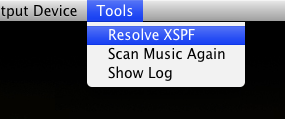Per Hypebot, terrestrial broadcasters have gotten a big rate reduction on webcasting, while web-only casters have no deal at all. I assume this is because terrestrial radio has a big bargaining chip in that record labels want terrestrial radio to pay more royalties.
rates for simulcasts or web channels operated by local radio stations are reduced 16% in 2009 then gradually increase through 2015 – from $0.0015 per streamed sound recording in 2009 to $0.0025 per stream by 2015.
Terrestrial radio already gets higher prices for its advertising than online radio, because it has better penetration in the local markets that the advertisers are trying to reach. So it’s now going to be paying less in royalties at the same time that it’s earning more in advertising.
In related previous news, Yahoo and AOL both killed their homegrown webcasting operations in favor of outsourcing to CBS. One would wonder what’s in it for CBS, given that it should be working with the same impossible economics as Yahoo and AOL, but apparently CBS pays lower royalties than they do.
Techies may get a warm feeling from the fact that Last.fm is a CBS property, so there’s a competitive piece of music software in the mix. CBS is also the major backer of Targetspot, the major broker of webcasting ad inventory. Targetspot bought Ronning Lipset, the major ad sales firm for webcasting ad inventory.
So don’t get all web 2.0 on that shit. It’s not like print publishing and advertising where organizations like the New York Times are crumbling. With online music the old school radio world is making big moves.
Well, ok, it’s not all great news for CBS. I have heard that terrestrial stations are seeing the writing on the wall about the end of their business, though I don’t know enough about their business to be able to judge the truth of it. But let’s say it’s true, and let’s also say that the online picture looks pretty damn good for CBS. The overall picture is of a pre-cloud giant making a very credible move into the cloud.
